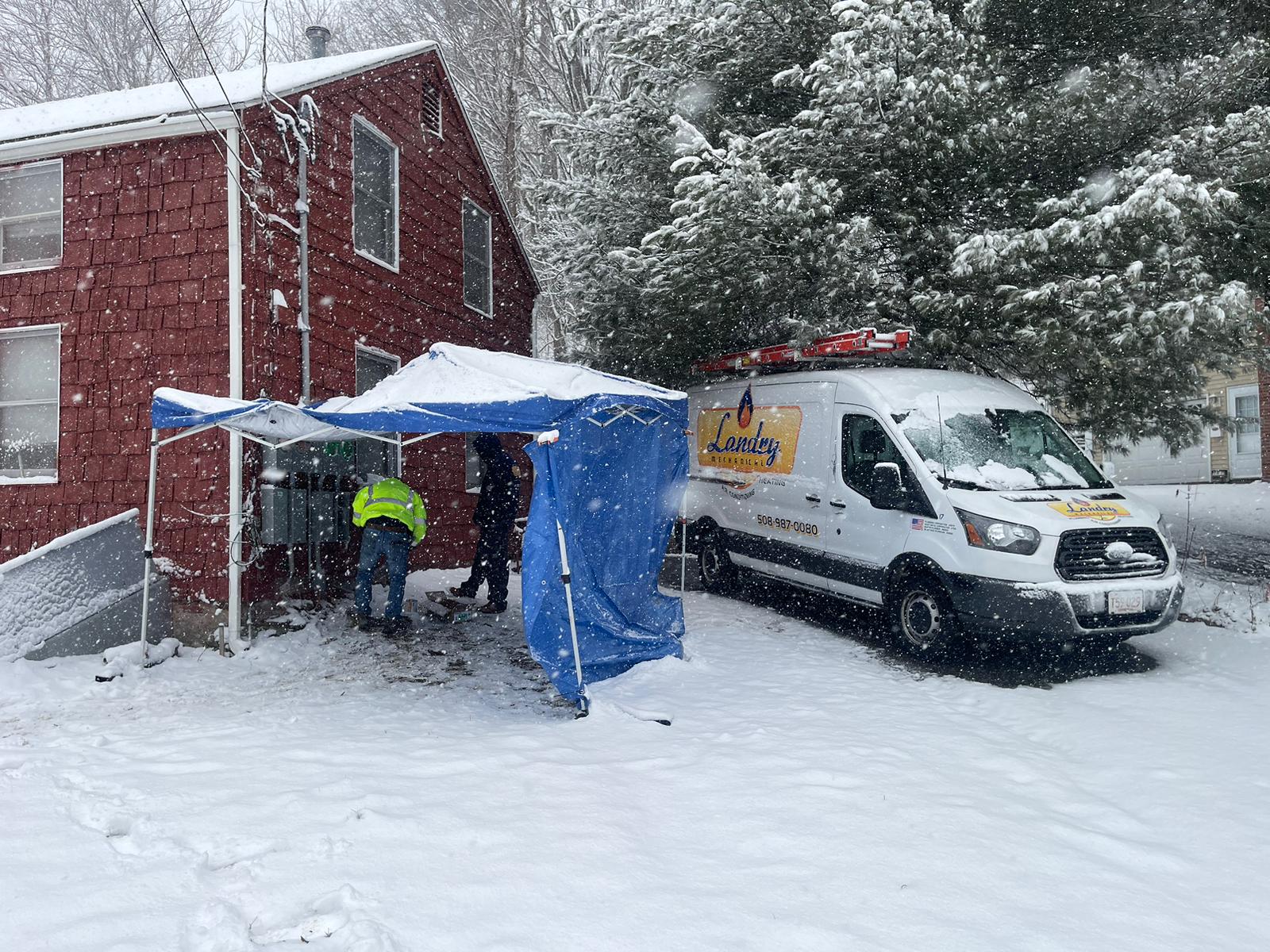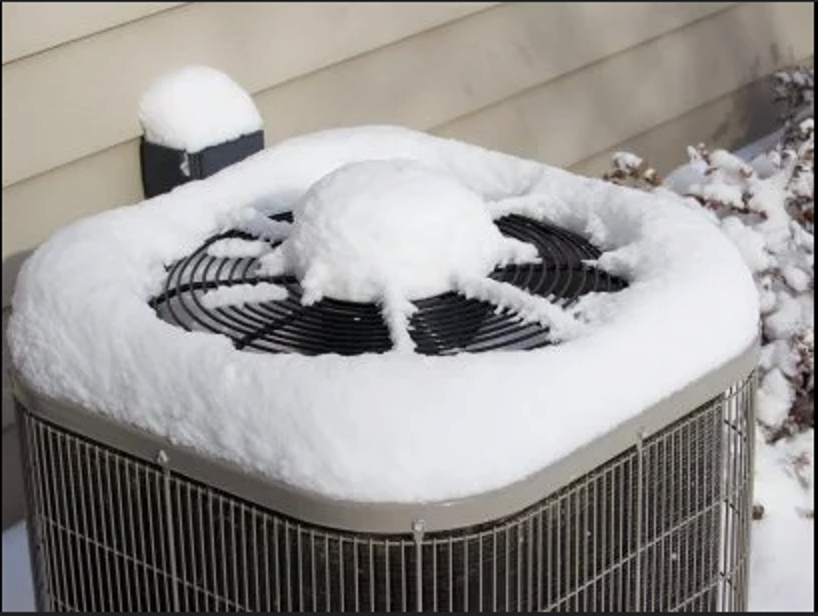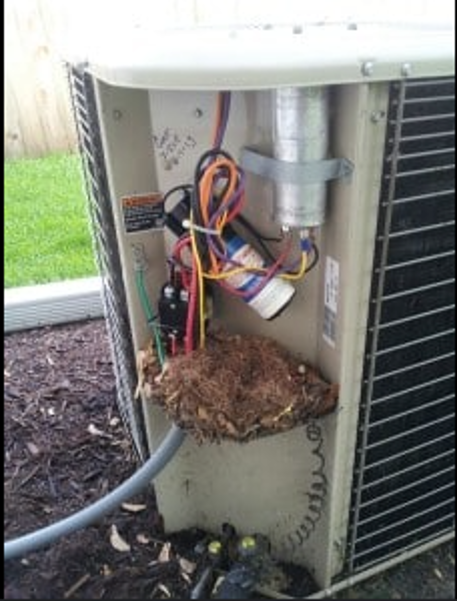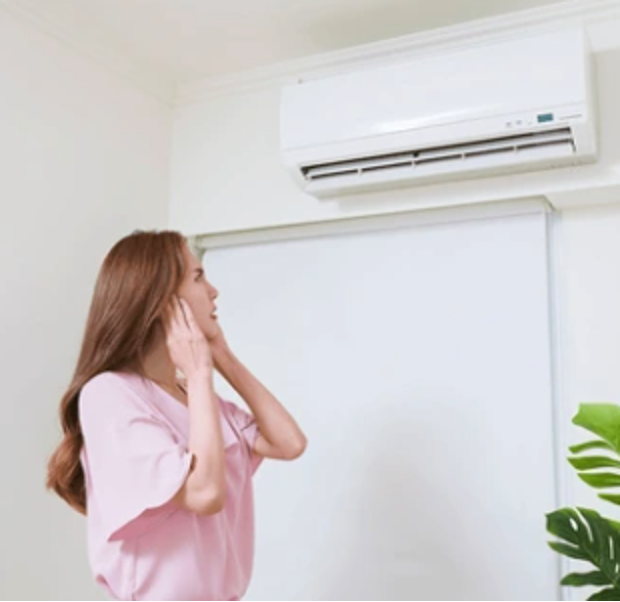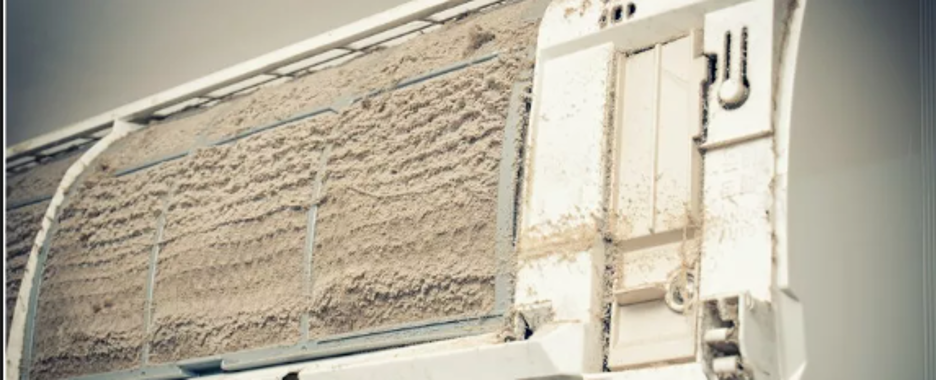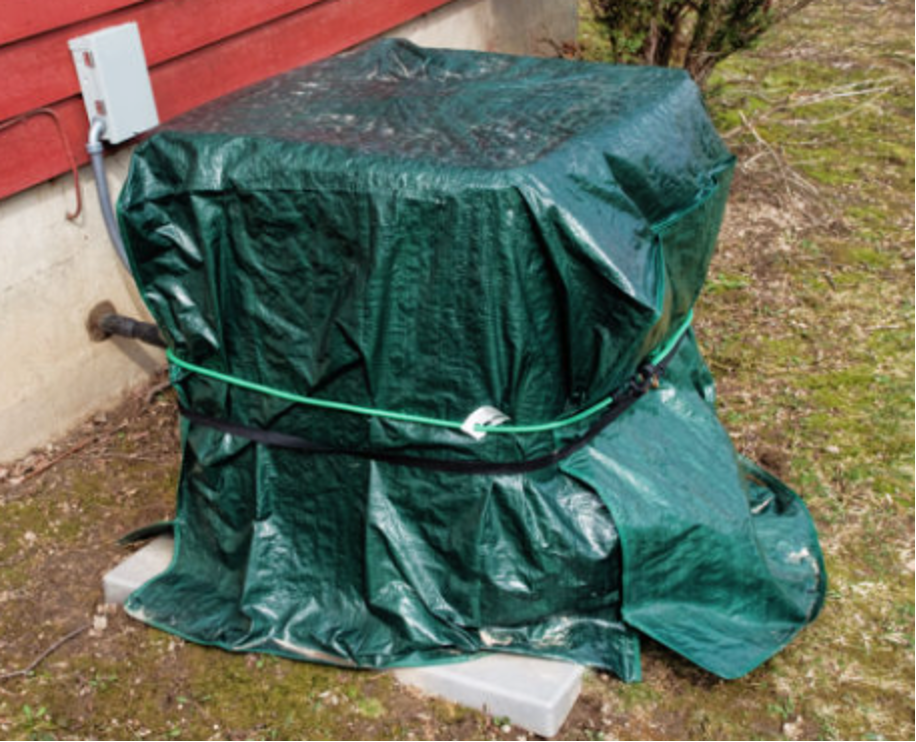When Should I Repair or Replace My AC?
Spring is finally here! Many homeowners wonder when should I repair or replace my AC?
Landry Mechanical is here to offer expert advice on when you should consider repairing or replacing your AC.

How Long Do Air Conditioners Last?
According to Carrier, you can expect a good 15 to 20 years of cooling from a new high-efficiency air conditioning system.
However, there are a number of factors that impact how long air conditioners last.
- Climate (Especially High Humidity)
- Air Quality Issues such as pollution or salty sea air
- Regular or Irregular AC Maintenance
- Installation Quality & Proper Sizing
- How Often The System is Used
Signs Your Air Conditioner Isn’t Working
There are many tell-tale signs that your air conditioner isn’t working. Here are some of the most common signs we run into at Landry Mechanical.
- Frequent Breakdowns
- Water or Refrigerant Leaks
- Thermostat Problems
- Unit Won’t Turn Off or Turn On
- Poor Airflow/Uneven Cooling
- Burning or Moldy Smell Coming From Unit
- Excessive Noise Coming From The Unit
- Excessive Dust Accumulation
- Hot Air Blows Out Of The Unit

If you notice these signs it’s best to “Just Call Landry” Our Air Conditioning Experts frequently repair and replace Air Conditioning Systems in Central and Eastern Massachusetts.
When Should I Repair My AC?
New Central Air Conditioners can be an expensive investment.
Therefore, if your existing unit isn’t running properly it might be a good idea to consider repairs before replacements.
You Have A Newer Air Conditioner
If you have a newer air conditioner that’s less than five years old, it would be best to repair it. Many Air Conditioners come with a warranty that may cover repair costs.
You Have a Small One-Time Repair Need
If your ac has newer and you experience a small one time repair need it’s not a sign that you’ll need a replacement.
However, if you notice repeated breakdowns, it’s time to “Just Call Landry” and we’ll replace your AC system.

When Should I Replace My AC?
When it is no longer feasible to repair your AC it’s time to consider replacing it.
Here are some of the best reasons to replace your AC.
You Want To Lower Your Energy Bill
Older AC systems are not as energy efficient as newer models.
One of the best ways to reduce your energy cost is to replace old AC systems with new more efficient models.
However, this must be balanced with the cost of the new system.
Your Old AC Unit Is Rusty Or Ugly
If your old AC unit has signs of rust, corrosion, or is just ugly it’s time to replace the unit. Repair will not be an option in this case.
Your Air Conditioner is Too Small
Not All AC Units are equally powerful. Some AC systems are great for one room, but are unable to cool an entire house efficiently.
Also, underpowered AC units can raise your energy costs and shorten the unit’s lifespan by running it constantly.
Your AC System is Mismatched
In a central air system you have indoor units and outdoor units.
These components need to be compatible in order to cool your home effectively.
If you have a mismatched AC system, it won’t run smoothly and is far more likely to break down.
Conclusion
No homeowner wants their Air Conditioner to break down in the hot summer heat.
Fortunately, Landry Mechanical is here to help!
Our Air Conditioning Experts will keep you cool this summer with repairs and replacements when you need us.
Landry Mechanical, We Take COMFORT in YOUR Comfort!





